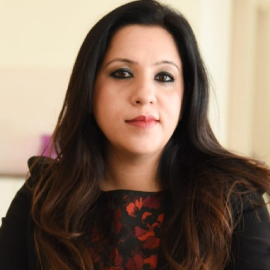What are typical relationship issues?
Typical relationship issues include communication breakdowns, trust issues, financial disagreements, and differing expectations or values. These problems can arise from various sources, including personality differences, external pressures, or significant life changes. Addressing these issues promptly and effectively prevents long-term damage and improves the relationship's health.
How can communication improve relationship issues?
Effective communication is fundamental in resolving relationship issues. It involves expressing thoughts and feelings clearly without blame and listening actively to understand the other person's perspective. Techniques like 'I' statements, active listening, and scheduled discussions can help prevent misunderstandings and build a stronger, more open relationship dynamic.
Can therapy help with relationship problems?
Therapy can be highly beneficial for addressing relationship issues, primarily when handled by a licensed therapist specializing in couples or family counselling. Therapists provide a neutral space for both parties to express their feelings and thoughts, helping them learn practical conflict resolution skills and deepen their understanding of each other's needs and behaviours.
What role does trust play in relationships?
Trust is a cornerstone of any healthy relationship. It builds a security foundation, allowing individuals to feel safe sharing their feelings and vulnerabilities. When trust is broken, it can lead to resentment and disconnection. Rebuilding trust requires time, consistency, transparency, and commitment from all parties involved.
How do external factors like stress affect relationships?
External stressors such as job pressures, financial problems, or family conflicts can significantly strain relationships. They can distract attention from relationship maintenance, lead to misdirected anger, or increase anxiety and depression. Managing these stressors through healthy coping mechanisms and mutual support is essential for maintaining relationship stability.
Can differing values cause relationship issues?
Differing values can lead to conflicts if not respectfully understood and negotiated. Whether concerning lifestyle choices, parenting methods, or personal beliefs, partners must discuss their values openly and find common ground or ways to accept each other's differences without judgment.
What is emotional intelligence, and how does it affect relationships?
Emotional intelligence (EI) refers to understanding and managing emotions and empathizing with others. High EI can significantly enhance relationship quality by improving conflict resolution, empathy, and emotional support. Developing EI involves self-reflection, understanding emotional triggers, and practising emotional regulation techniques.
How can we handle conflicts in relationships?
Effective conflict management involves addressing issues directly and respectfully. Techniques include focusing on the problem rather than the person, avoiding blame, and clearly expressing feelings and needs. It's also important to seek compromise and consider each other's perspectives, striving for solutions that satisfy all parties.
Is it normal to have ups and downs in relationships?
Due to the dynamic nature of human interactions and life changes, it is entirely normal for relationships to experience ups and downs. Recognizing that these fluctuations are normal can help individuals navigate challenges more effectively. Maintaining open communication and mutual support during tough times is crucial.
What strategies can help prevent relationship issues?
Preventive strategies for relationship issues include regular communication, date nights, relationship check-ins, and setting clear expectations. Engaging in shared activities that strengthen bonds and ensure that both parties feel valued and understood is also beneficial.
How do personal issues like self-esteem affect relationships?
Personal problems such as low self-esteem can impact relationships by influencing how individuals perceive themselves and interact with their partners. Low self-esteem might lead to jealousy, dependency, or withdrawal, straining the relationship. Addressing these personal issues through self-care, therapy, and open communication can improve relationship dynamics.
Can lifestyle changes improve relationships?
Lifestyle changes such as adopting healthier habits, spending quality time together, and managing stress effectively can improve relationship satisfaction. These changes can enhance physical and emotional well-being, creating a happier and more fulfilling relationship.
What is the importance of intimacy in relationships?
Emotional and physical intimacy is vital for a strong and healthy relationship. It fosters closeness, trust, and a better emotional connection. Maintaining intimacy requires regular, open communication about each partner's needs and desires and a commitment to mutual satisfaction and comfort.
How can relationship goals enhance partnership quality?
Setting and pursuing shared goals can significantly improve the quality of a relationship. These goals provide a sense of purpose and direction, bringing partners closer as they work together towards common objectives. Goals can range from financial plans to personal development or family planning.
What are the signs of a healthy relationship?
Signs of a healthy relationship include mutual respect, trust, honesty, support, and good communication. Healthy relationships also involve independence, where each person can pursue their interests and friendships outside the relationship, contributing to their growth and happiness.
How can couples maintain their relationships over time?
Maintaining a relationship over time requires effort and commitment from both partners. Regular communication, appreciation, shared experiences, and ongoing support are essential. It's also important to adapt to changes and challenges together, viewing them as opportunities for growth and deepening the relationship.
What are common misunderstandings in relationships?
Relationship misunderstandings often involve communication issues, such as misinterpreting words or actions. Assumptions about the other person's thoughts or feelings without checking in can also lead to misunderstandings. Addressing these directly through open, honest conversation helps clear misconceptions and prevent resentment.
How does relationship counselling work?
Counselling helps couples or family members understand and resolve conflicts, improving their relationships. Counsellors facilitate communication, help clarify feelings, and provide tools and strategies for handling challenges. Sessions can also help deepen understanding and empathy, strengthening the bond between participants.
What are the challenges of long-distance relationships?
Long-distance relationships face unique challenges, such as physical separation, differing time zones, and less frequent direct communication. Overcoming these challenges requires trust, strong communication skills, and creative ways of maintaining connections, such as regular video calls, shared activities, and planning visits.
Can relationships recover from infidelity?
Recovery from infidelity is challenging but possible with commitment from both parties. It requires rebuilding trust through transparency, consistent behaviour, and open communication. Couples may also benefit from professional counselling to navigate the emotional aftermath and learn to understand and forgive if they stay together.






